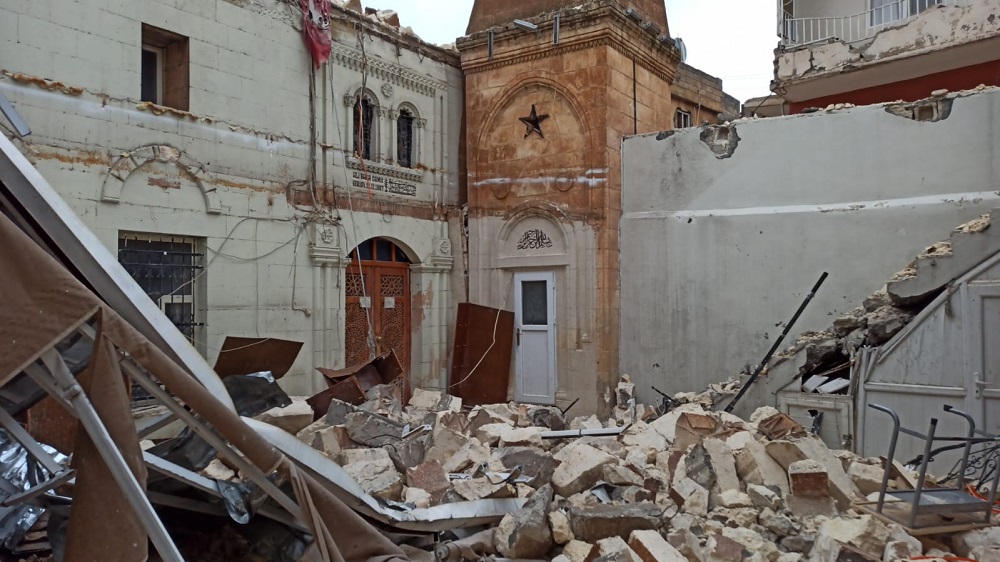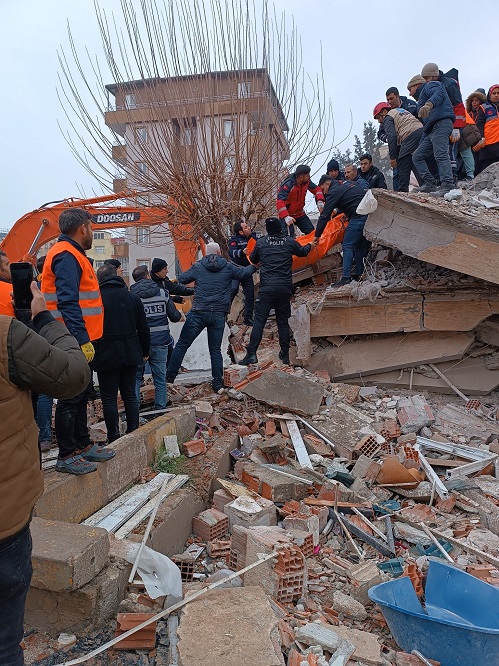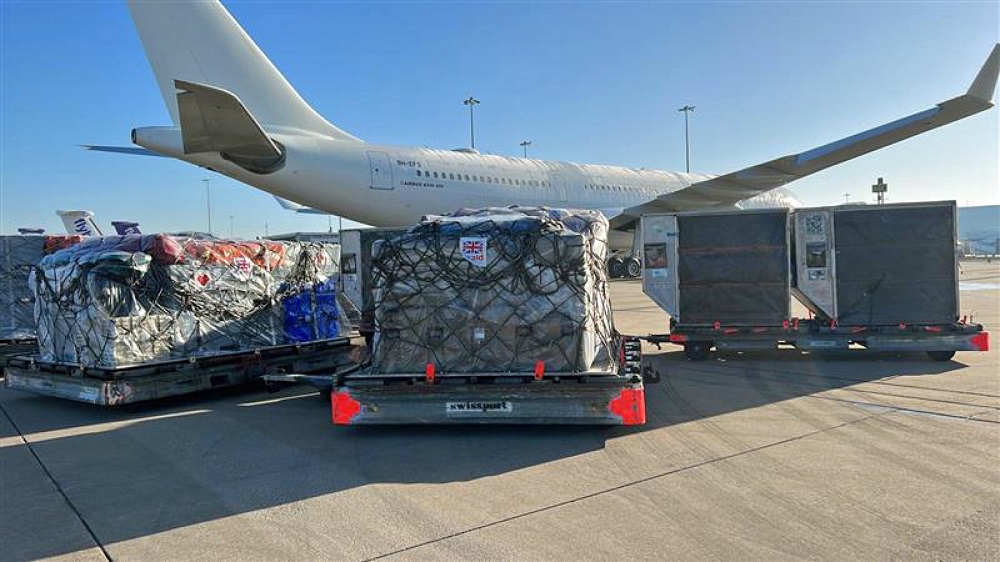Turkey-Syria earthquake: the challenge of delivering aid in a disaster zone

Senior Lecturer, Disaster Healthcare, University of South Wales
It’s the middle of the night and you are fast asleep. Suddenly you have ceiling plaster smashing down on you, pictures are falling off the walls and your bedroom is swaying. You wake your partner, grab the kids and make your way down a stairwell in the darkness as you are hurled from side to side.
You find yourself standing in the street in your pyjamas in the freezing cold. It is pitch black with only a few car headlights and mobile phone torches lighting up the dust and debris.
This is a snapshot of the kind of experiences that families and individuals caught up in the devastating earthquakes that shook Turkey and Syria in the early hours of February 6 will have endured. For those outside the event, the experiences of people inside the disaster are difficult to comprehend. Yet, despite the confusion and mayhem, and having been part of several humanitarian disaster responses around the globe, I know there are three priorities for aid.
One is rescuing those who are trapped. The window of opportunity for getting people out of the rubble is small. As every hour and day passes, more lives will be lost as people buried in collapsed buildings succumb to their injuries, the cold or dehydration.

Another priority is treating the injured. Collapsing buildings can leave survivors with broken bones, spinal, chest and head injuries and even burns and open wounds.
At the same time, the hospitals and clinics people would usually use for treatment may be swamped with injured people. Or the buildings themselves may be damaged and unable to function as normal. Plus the medical staff required to treat and care for patients may also be either dead or injured.
Finally, there is a need to help those left homeless. The earthquakes and aftershocks in Turkey and Syria have affected thousands of people in this way. The true number remains unknown and will probably not become clear for several more weeks.
Lack of shelter
A lack of shelter is itself a killer, especially during the cold winter months. The situation is particularly treacherous for children, older people, those with disabilities and long-term health conditions.
The people who have lost their homes will need shelter, food and water as a bare minimum. They will also need to reconnect with family members who they will have lost contact with in the chaotic aftermath of the earthquake.
These three priorities do not represent a hierarchy of need. A lack of rescue, treatment for the injured and housing for the homeless are three immediate life-threatening needs that all exist at the same time.
This makes responding to disasters very difficult because a decision in one direction may leave other much-needed aid undelivered. One of the tragedies of such human disasters is being faced with a level of need that overwhelms the ability to respond.
Delivering aid in disasters is logistically difficult as roads, ports, and bridges are put out of use. At the same time, essential services for aid such as power, IT and mobile phone systems may also be out of action. Even so, local and international disaster response teams have ways of working to ensure aid is distributed to those most in need.

Aid agencies conduct rapid needs assessments paying particular attention to disaster victims who are particularly vulnerable, then make sure that the aid available matches the requirements of the population. Multiple aid agencies then coordinate their efforts to ensure aid is distributed efficiently.
The immediate response over the next few days and weeks is only the first step to recovery, however. Disaster response teams and international aid workers may stay on the ground for several more weeks to help with the delivery of medical care and essential services such as the distribution of food and water and providing shelter.
But eventually, they will withdraw. This leaves the survivors to cope with their grief and attempt to rebuild a life that has some degree of meaning and purpose.
They took assistance, but our problems were not resolvable with these assistances. We lost everything, what we built in years. This assistance was like a dress on the deep wound that covers the surface of the wound, but it doesn’t help repair.
This is a quote from an earthquake survivor in Iran published in 2016 and is a reminder of the depth of loss experienced by disaster survivors. It also reminds us the deep wounds inflicted by the earthquakes in Turkey and Syria – not only physical wounds but psychological wounds – will take a long time to heal.
We can hope that the immediate aid offered in Turkey and Syria will go some way to saving lives and allowing survivors to begin to recover.
This article was first published on The Conversation
Support our Nation today
For the price of a cup of coffee a month you can help us create an independent, not-for-profit, national news service for the people of Wales, by the people of Wales.







Whilst I would encourge everybody who is able to afford to support the DEC appeal for the earthquake victims to do so, it might be worth also considering the White Helmets. This is a group that has been providing relief in the war torn areas of Syria which for various reason will probably be the last to get support through the ‘normal’ routes. They have a website here: https://www.whitehelmets.org/en/ If you have supported Avaaz’s various campaign over the years you will probably have already received a request to help the White Helmets. Avaaz is a wordwide left leaning organisation much… Read more »